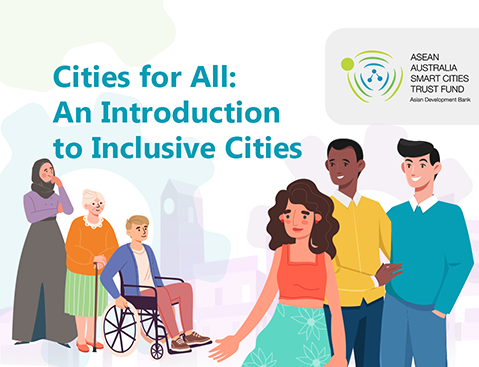Enrollment options

Cities for All: An Introduction to Inclusive Cities
In
this 3-part course, learn how to make cities inclusive, especially for
the marginalized and vulnerable. Examine inclusion issues and why these
persist, and gain an understanding of gender equality and social
inclusion considerations and how these can be integrated into projects,
to help unlock the potential of smart livable cities for all.